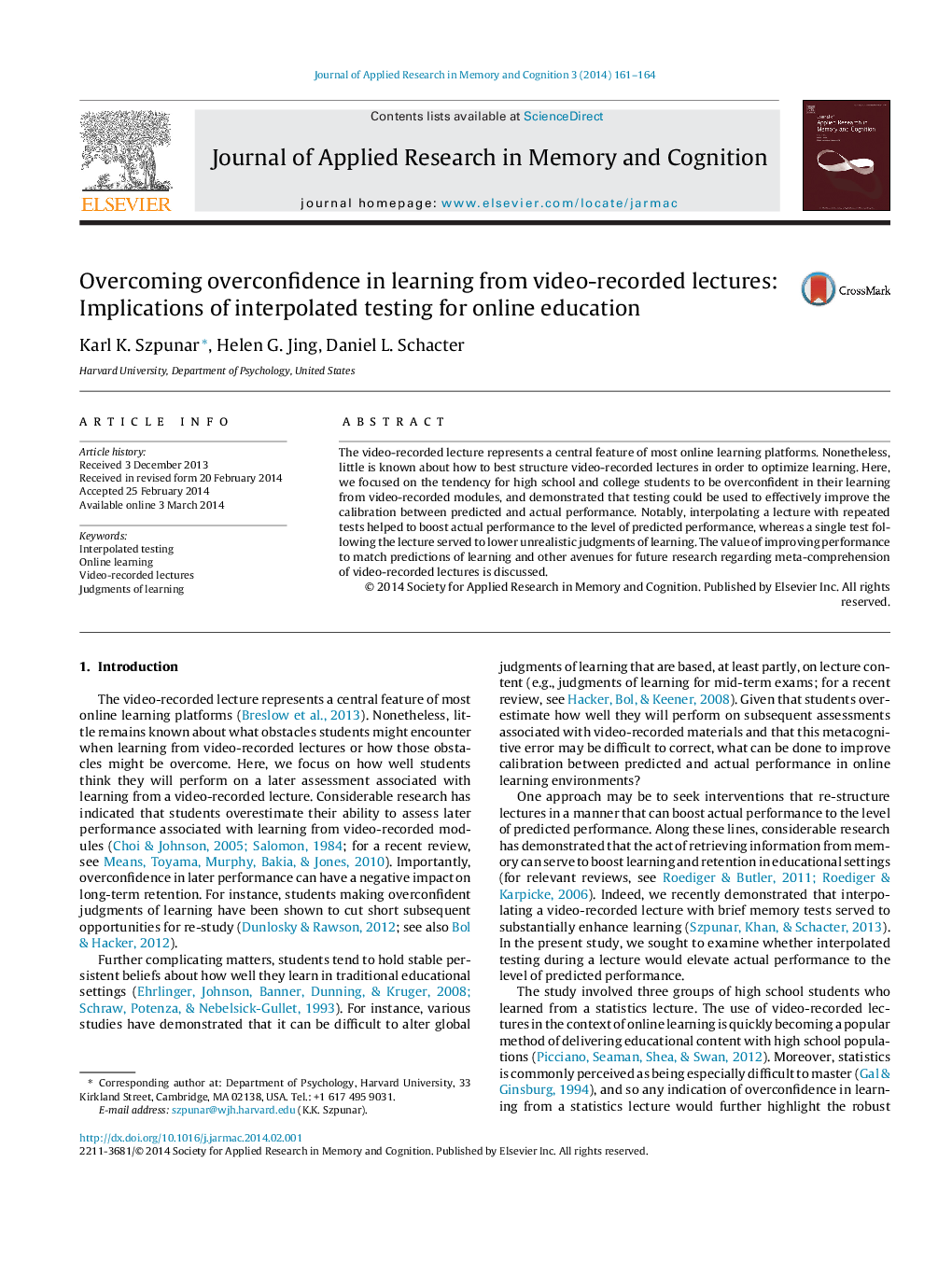| Article ID | Journal | Published Year | Pages | File Type |
|---|---|---|---|---|
| 881712 | Journal of Applied Research in Memory and Cognition | 2014 | 4 Pages |
•Learners were generally overconfident about how well they learned from a video-recorded statistics lectures.•Interpolated testing served to boost actual performance to the level of predicted performance.•Test questions presented only at the end of the lecture served to lower unrealistic judgments of learning.•Interpolated testing represents a particularly effective approach to produce high levels of predicted and actual performance.
The video-recorded lecture represents a central feature of most online learning platforms. Nonetheless, little is known about how to best structure video-recorded lectures in order to optimize learning. Here, we focused on the tendency for high school and college students to be overconfident in their learning from video-recorded modules, and demonstrated that testing could be used to effectively improve the calibration between predicted and actual performance. Notably, interpolating a lecture with repeated tests helped to boost actual performance to the level of predicted performance, whereas a single test following the lecture served to lower unrealistic judgments of learning. The value of improving performance to match predictions of learning and other avenues for future research regarding meta-comprehension of video-recorded lectures is discussed.
